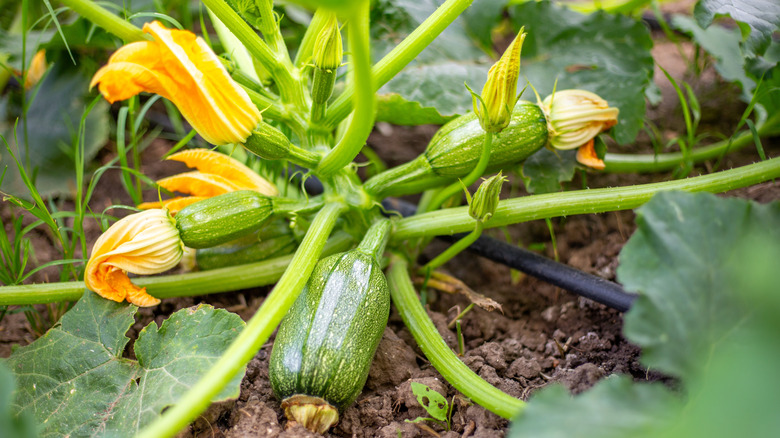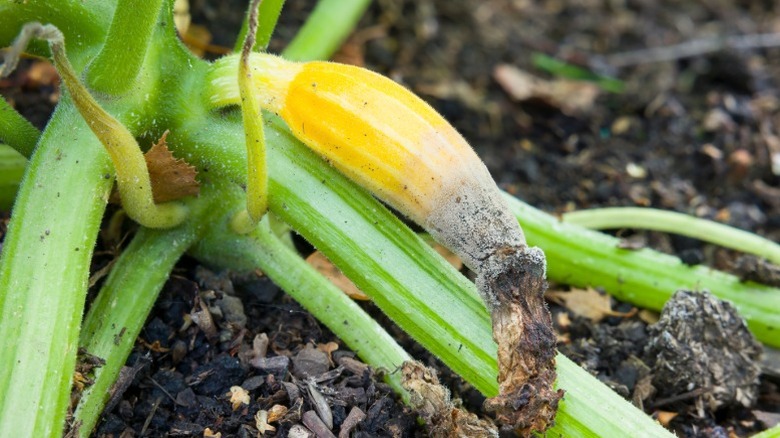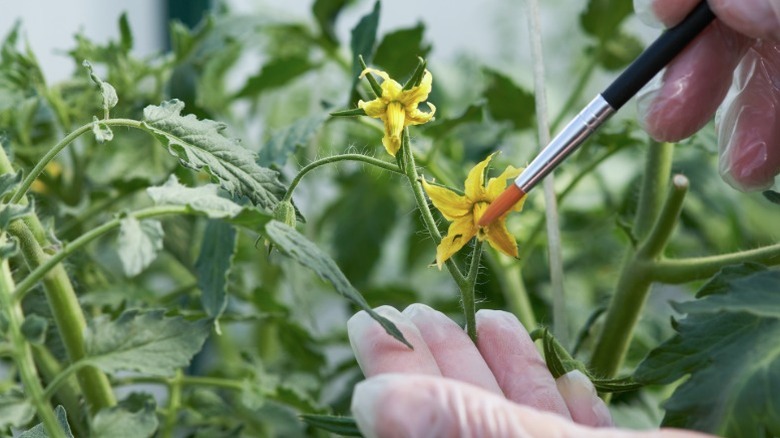What Your Zucchini Plant Is Trying To Tell You With Its Small Rotten Fruit
If your zucchini keeps giving you tiny, sad fruits that rot at the blossom end before they're even snack-sized, it's not being dramatic; it's giving you a signal. And no, it's not a cry for more water or better soil. What it's really saying is: "I didn't get pollinated."
Zucchini plants produce separate male and female flowers, and for fruit to develop properly, pollen from the male flower needs to reach the female flower. When that doesn't happen, or only happens halfway, the plant still tries to grow fruit, but the result is a zucchini that shrivels and rots.
This happens more often than you'd think. Pollination problems are common when bee activity is low, when the weather is too hot, windy, or rainy, or when there aren't enough pollinator-friendly plants nearby — a common mistake to avoid if you're trying to attract pollinators to your garden. However, it's also easy to misread, as it mimics the look of blossom end rot, a calcium issue that often affects tomatoes and peppers — You can typically spot a pollination miss by looking for signs of shriveling on the stem, fruit, and blossom.
When zucchini flowers don't bloom in sync
One of the mistakes you might be making with your zucchini plants is assuming there's plenty of time for pollination to happen. But zucchini flowers have an incredibly short workday. Each one only stays open for a few hours in the morning, which means there's a small window for pollen to get from point A to point B. If a bee doesn't show up, or the flowers don't overlap in timing, things fall apart pretty fast.
Female flowers (the ones with a baby zucchini behind them) rely on male flowers to supply enough pollen to kick off real fruit development. But the timing isn't always ideal. Male flowers often bloom first, sometimes days earlier, and by the time female blooms show up, the pollen party is already over.
Even when everything blooms at once, poor weather or a pollinator shortage can throw things off. Bees aren't fans of rainy days or triple-digit heat, so if they skip your garden, your zucchinis suffer. The fruit starts to form, but without enough pollination, it fizzles out fast.
How to hand-pollinate when bees ghost your garden
The fix is surprisingly simple. You can hand-pollinate with a cotton swab, small paintbrush, or even your finger. In the morning, when the flowers are open, collect pollen from the male flower and gently dab it onto the center of a female one. That's it. You're basically playing bee, minus the buzzing.
It's a quick, low-effort method that usually makes a big difference. You'll likely see your next round of fruits grow faster, fuller, and without the dreaded rot. If daily hand-pollination isn't your thing, you can encourage natural pollination by planting bee-friendly flowers, avoiding pesticides, and giving your zucchini some airflow.
Small, rotten fruit can look alarming, but if the rest of your zucchini plant is healthy (with green leaves and fresh blooms), there's usually no cause for concern. This isn't a sign that your plant is doomed; it's just a signal it needs a little extra help. With a bit of attention, your zucchini is likely to bounce back quickly, and these tips for growing zucchini can help you give it just what it needs.


